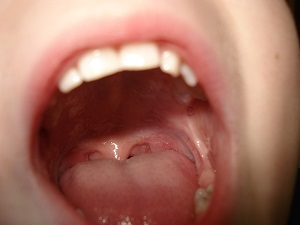Stomatitis refers to the inflammation of the mucous lining of the mouth, which can lead to discomfort, pain, and sometimes sores or ulcers. There are various potential causes of stomatitis, and the treatment approach can depend on the underlying cause. Here are 10 common causes of stomatitis:
1. Infectious Agents
- Viral Infections (Herpes Simplex Virus): Herpes simplex virus (HSV) can cause cold sores or fever blisters on or around the lips and inside the mouth. These sores can be painful and lead to stomatitis.
- Fungal Infections (Candida): Candida, a type of yeast, can overgrow in the mouth, causing a condition known as oral thrush. This can lead to white patches on the tongue, inner cheeks, and throat, accompanied by discomfort and pain.
2. Trauma
- Accidental Biting: Accidentally biting the inside of your cheek, lip, or tongue can cause physical trauma to the delicate tissues, leading to inflammation and the development of sores.
- Dental Appliances: Ill-fitting dentures, braces, or other dental appliances can rub against the mouth’s lining, causing irritation and contributing to stomatitis.
3. Allergic Reactions
- Allergic Response: Certain individuals may develop an allergic reaction to substances like certain foods, oral care products (toothpaste, mouthwash), or medications. This immune response can lead to inflammation and irritation in the mouth.
4. Autoimmune Conditions
- Lupus: Systemic lupus erythematosus (SLE) is an autoimmune disease that can cause chronic inflammation in various parts of the body, including the mouth, leading to ulcerations and stomatitis.
- Behçet’s Disease: This rare autoimmune disorder can cause oral and genital ulcers, along with other symptoms like skin lesions and eye inflammation.
5. Vitamin Deficiencies
- B Vitamins (B12 and Folate) Deficiency: Insufficient intake of B vitamins, commonly found in foods like meat, dairy, and leafy greens, can lead to inflammation and ulceration of the mouth’s mucous lining.
6. Chemotherapy and Radiation
- Cancer Treatments: Chemotherapy and radiation therapy, used to treat cancer, can damage rapidly dividing cells, including the cells lining the mouth. This damage can cause painful ulcerations and stomatitis.
7. Irritants
- Tobacco and Alcohol: Frequent use of tobacco products and excessive alcohol consumption can irritate the oral tissues, leading to inflammation and an increased risk of developing stomatitis.
8. Medications
- Non-Steroidal Anti-Inflammatory Drugs (NSAIDs): Long-term use of NSAIDs, like aspirin or ibuprofen, can sometimes cause irritation in the stomach lining, which may extend to the mouth and lead to stomatitis.
- Chemotherapy Drugs: Apart from direct damage to cells, certain chemotherapy medications can cause mucositis, an inflammation of the mucous membranes that can affect the mouth.
9. Stress
- Stress and Anxiety: High stress levels can weaken the immune system and contribute to the development of various health issues, including stomatitis.
10. Inflammatory Conditions
- Crohn’s Disease and Ulcerative Colitis: Inflammatory bowel diseases can manifest with symptoms beyond the digestive tract, including mouth ulcers and stomatitis.
It’s important to consult a healthcare professional, such as a dentist or physician, for proper diagnosis and treatment If you suspect you have stomatitis. They can accurately determine the cause of your symptoms and recommend an appropriate treatment plan tailored to your specific situation.

